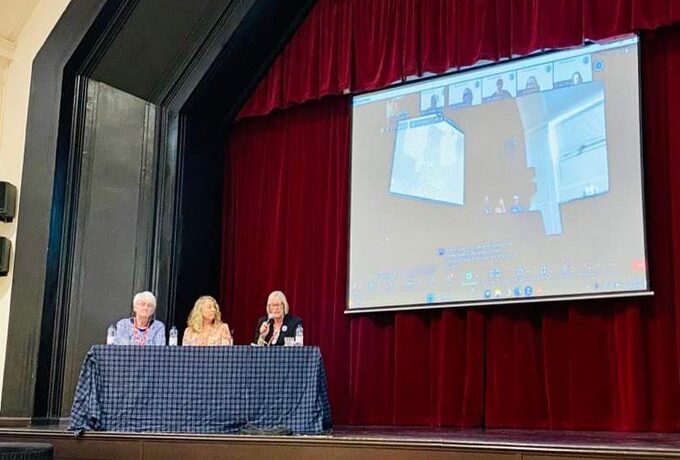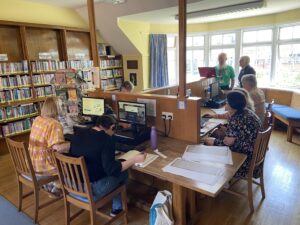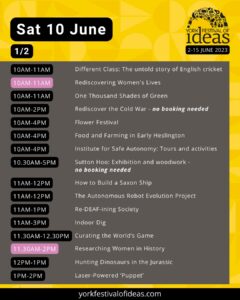Festival of Ideas Audience Rediscovers Women’s Stories


The audience was in attendance in person and online for both events. This year’s York Festival of Ideas theme was: Rediscover, Reimagine, Rebuild.
Janet Few, family historian and founder of the project A Few Forgotten Women, talked about the project, what they are doing and why. She introduced some of the team and shared some of the ethical issues which arise when dealing with histories of women whose descendants are alive today.
Fiona Grimshaw, of the Rowntree Society, shared some of the insights from their recent project, looking at the lives of women who worked in the factories. She spoke of the more prominent Rowntree women, about whom relatively little is known compared with their more renowned husbands, sons, brothers or fathers. The Society is keen to learn more about the lives and stories of Sarah Rowntree (1807-1888), Julia Seebohm Rowntree (1841-1863), Antoinette (Tonie) Rowntree (1846-1924), Lydia Rowntree (1869-1944) and Mount Old Scholar Jean Rowntree (1905-2003).
The audience, both in person and online, was brimming with questions, including interest in stories about other minorities, such as former slaves or indentured labourers, LGBTQIA+ stories, migrant stories and those of people who had no voice. Kate Hignett of York HERstory, invited audience members to get more involved in their community history project to research and celebrate the ‘invisible’ women of York.
“I found the talk fascinating especially as I’m researching my own family history for my EPQ, looking at causes of emigration. The question and answer session was very informative as both members of the audience and the panel had good advice on researching family history, and referenced useful archives which are free to use,” said Emilia (College II). See below for Emilia’s analysis of and response to the panel discussion.
The panel was chaired by Sarah Sheils, former History Teacher and Archivist of The Mount School, and author of Among Friends; History of The Mount School, York.

On the same day the Few Forgotten Women and the Rowntree Society hosted a live history research project in the Main Library. A hybrid audience in the Main Library and online were given the 1901 census and could select to research either VAD Nurses or Mount School pupils and staff from the census.
They had access to online facilitators from the Few Forgotten Women project who had live access to newspaper archives, and genealogy databases and were able to share resources that would otherwise remain beyond the researchers’ reach.
After two hours of solid research and a delicious lunch from The Mount’s catering team, the workshop researchers were inspired to continue in their own time. Look out next year for an ISSP version for York school pupils!
